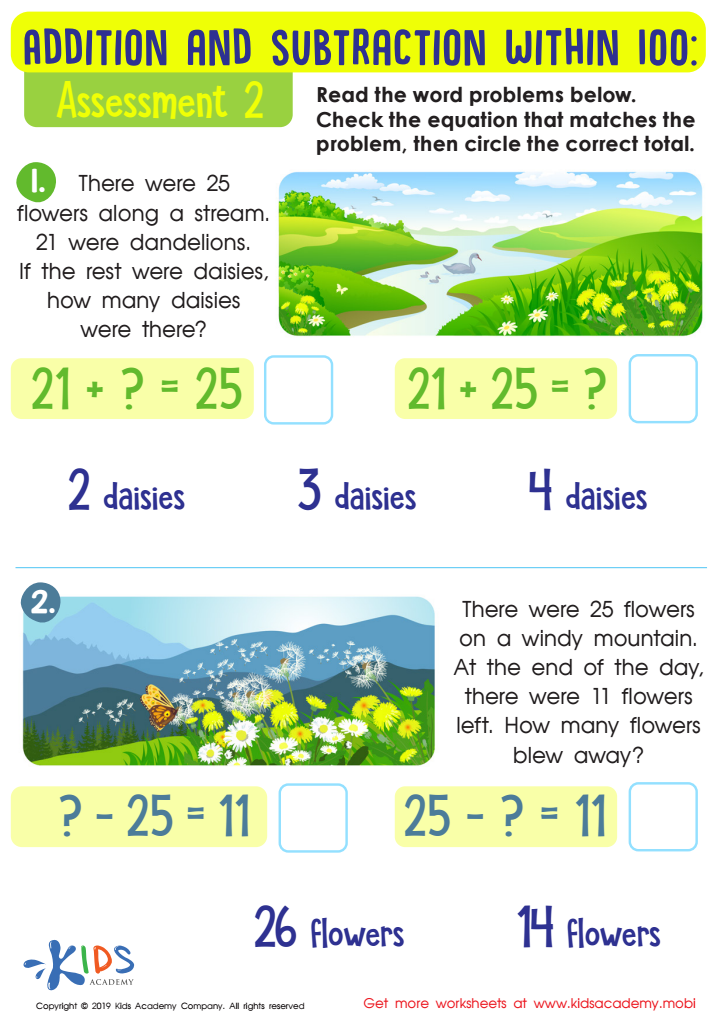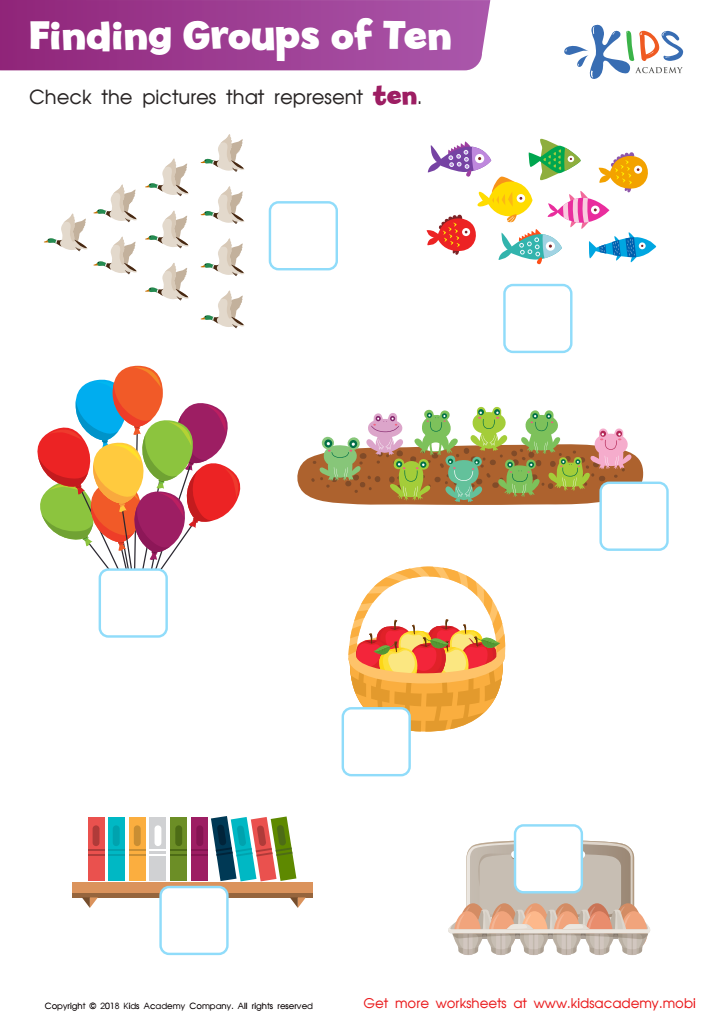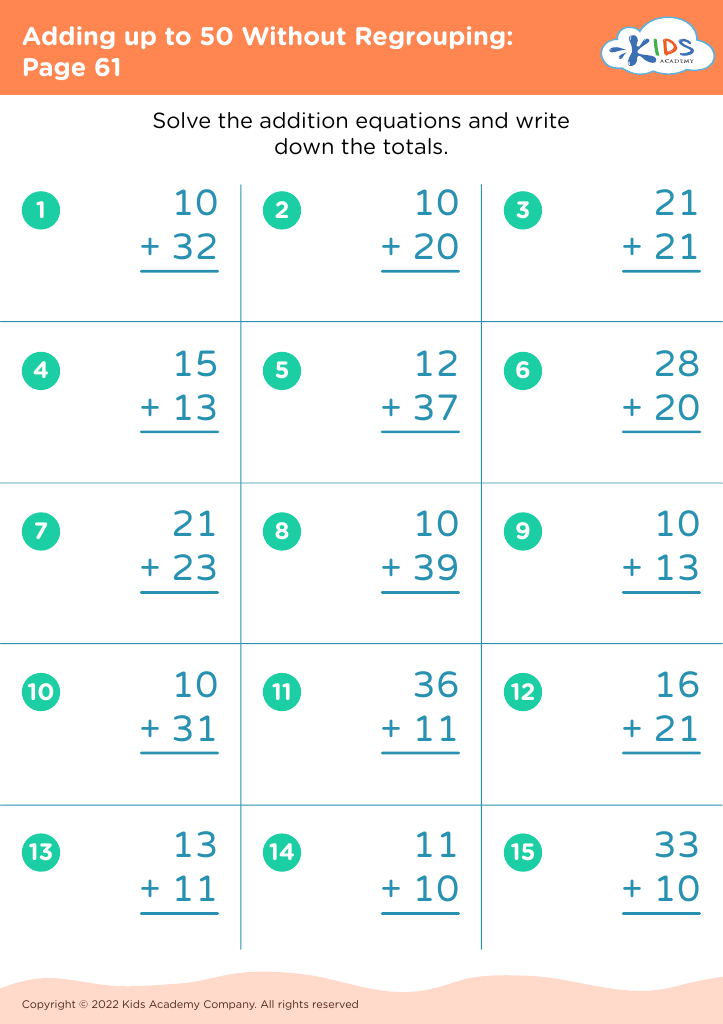Understanding grouping Worksheets for Ages 7-9
3 filtered results
-
From - To
Discover our engaging "Understanding Grouping Worksheets" designed for children aged 7-9. These worksheets focus on enhancing students' abilities to categorize items based on various characteristics, a crucial skill in early education. By using visually appealing and age-appropriate activities, these worksheets help learners develop critical thinking and organizational skills. Kids will practice identifying patterns, sorting objects, and grouping them effectively, reinforcing their understanding of classification and improving their cognitive abilities. Ideal for classroom use or at-home learning, our worksheets provide an enjoyable way for students to grasp the concept of grouping while building a strong foundation for future math and science skills.


Assessment 2 Math Worksheet


Finding Groups of Ten Worksheet
Understanding grouping is crucial for children aged 7-9 as it lays a strong foundation for higher-level mathematical concepts and enhances their critical thinking skills. At this age, students begin to explore more complex operations and problem-solving scenarios, making the comprehension of grouping indispensable. Grouping allows children to organize information efficiently, making it easier to manage larger sets of numbers in addition, subtraction, or even early multiplication.
Furthermore, grouping nurtures a child’s ability to recognize patterns, a key skill in both mathematics and everyday situations. By grouping items, children learn how to categorize and classify, improving their analytical skills. This can lead to better decision-making and collaboration, as they can easily see connections and relationships in both social and academic contexts.
Moreover, teaching grouping can foster a deeper understanding of concepts like division, where students learn to divide items into equal parts. When parents and teachers guide children through these processes, they not only bolster their math skills but also promote a sense of confidence and independence in learning. Ultimately, investing time in helping children grasp grouping concepts prepares them for more advanced academic challenges, setting them on a path to success in mathematics and beyond.
 Assign to My Students
Assign to My Students





















